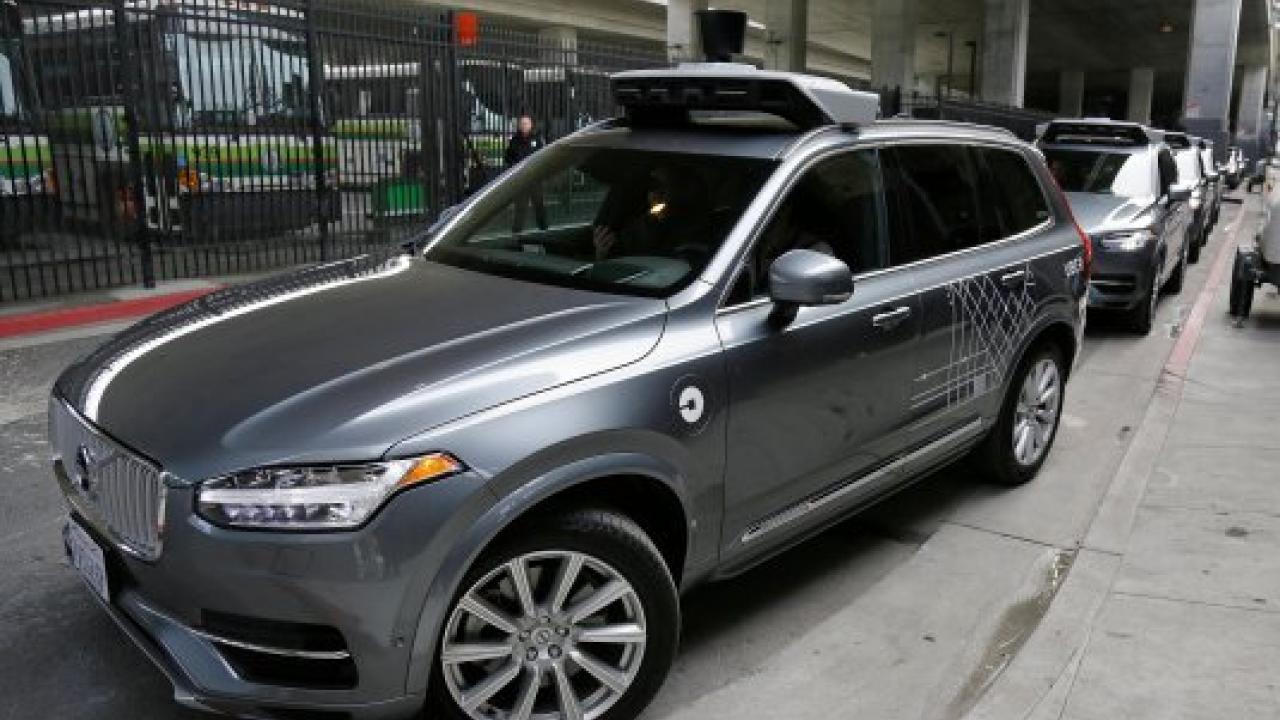
Future Cars will be Driverless, Shared and All Electric
Future Cars will be Driverless, Shared and All Electric
By Mollie D’Agostino
The nation’s top transportation experts see rapid change in transportation as a result of three major technology revolutions: shared, electric and automated vehicles. That’s according to a survey by the Institute of Transportation Studies at UC Davis. The group also released a set of policy briefs, described below, which were guest-authored by leading transportation policy experts.
Forty policymakers, researchers, and representatives from government, nonprofit organizations and the technology and auto industries participated in the survey, which was developed in connection with the launch of ITS-Davis’ new Policy Initiative, “3 Revolutions: Sharing, Electrification and Automation.”
“For the first time in half a century, real, transformative innovations are coming to the world of passenger transportation,” said Dan Sperling, director of ITS-Davis and the new 3 Revolutions Policy Initiative. “This survey shows us that without thoughtful collaboration and community-facing policies, these changes would lead to increased inequities, vehicle travel, and greenhouse gas emissions. We need to be creative in order to steer these innovations to the public interest.”
The 3 Revolutions Policy Initiative addresses the big policy questions related to these new technologies, and the partnerships needed to bring the greatest social and market benefit.
Seventy percent of survey participants think fully driverless vehicles will account for more than 20 percent of vehicles sold by 2040.
Eighty-eight percent think commercially offered shared rides will make up more than 5 percent of all U.S. passenger miles by 2030, and 78 percent think commercially offered shared rides will account for more than 20 percent of U.S. passenger miles traveled by 2040.
Seventy percent also think that by 2050, the majority of vehicles used commercially for ride and car sharing in the nation will be zero-emission vehicles, including battery, plug-in hybrid, and fuel-cell electric vehicles.
Almost all of the survey participants selected California as the state most likely to embrace all three transportation trends.
When respondents were asked to specify which companies are best positioned to capitalize on the revolution in autonomous, shared and electric vehicles, 67 percent listed Google, 64 percent named Tesla and Uber, and 48 percent chose Lyft and General Motors.
“The results of this survey suggest that disruptive technologies are coming from both inside and outside automotive,” said Peter Kosak, executive director, Urban Mobility at General Motors. “In the end, partnerships — including working relationships with governments and communities — are likely essential to a rapid and successful transition.”
Without policy actions, 77 percent of survey respondents said that the benefits of shared, automated vehicles will not be evenly distributed across income levels, and 80 percent said that sales of automated vehicles will result in more greenhouse gas emissions.
“The state of California has programs in place to fully support the rapid transition of the vehicle fleet to zero-emission vehicles, both battery electric and fuel cell,” said Richard W. Corey, executive officer of the California Air Resources Board. “This new survey underscores the need for the state to continue to work closely with research institutions like ITS-Davis and others. We will have a growing need for robust data and analysis to develop the incentives and programs needed to ensure that the inevitable shift to driverless cars and more shared-transportation choices works hand-in-glove with the expanding zero-emission vehicle market to help California achieve our climate and air quality goals.”
In addition to the survey, the ITS-Davis 3 Revolutions Policy Initiative is releasing the following policy briefs, which are guest-authored by leading experts in transportation policy:
- Equity: Can We Advance Social Equity with Shared, Autonomous and Electric Vehicles, guest-authored by Stuart Cohen, TransForm; and Sahar Shirazi, California Governor’s Office of Planning and Research.
- Climate: Capturing Climate Benefits of Autonomous Vehicles, guest-authored by Don Anair, Union of Concerned Scientists.
- Bicycle/Pedestrian: Active Travel in an Era of Electrification, Automation and Sharing, guest-authored by Susan Handy, National Center for Sustainable Transportation, UC Davis.
- Public Transit: Three Transportation Revolutions — Synergies with Transit, guest-authored by Steven E. Polzin, Center for Urban Transportation Research, University of South Florida.
- Governance: Who’s in Charge Here? guest-authored by David Ory, Metropolitan Transportation Commission; Fanta Kamakaté and Peter Slowik, International Council on Clean Transportation; and Carol Cooper, King County (Washington)
The 3 Revolutions Policy Initiative at ITS-Davis is funded by the ClimateWorks Foundation.
...Read the full story here at The Daily Democrat: The UC Davis News Service
